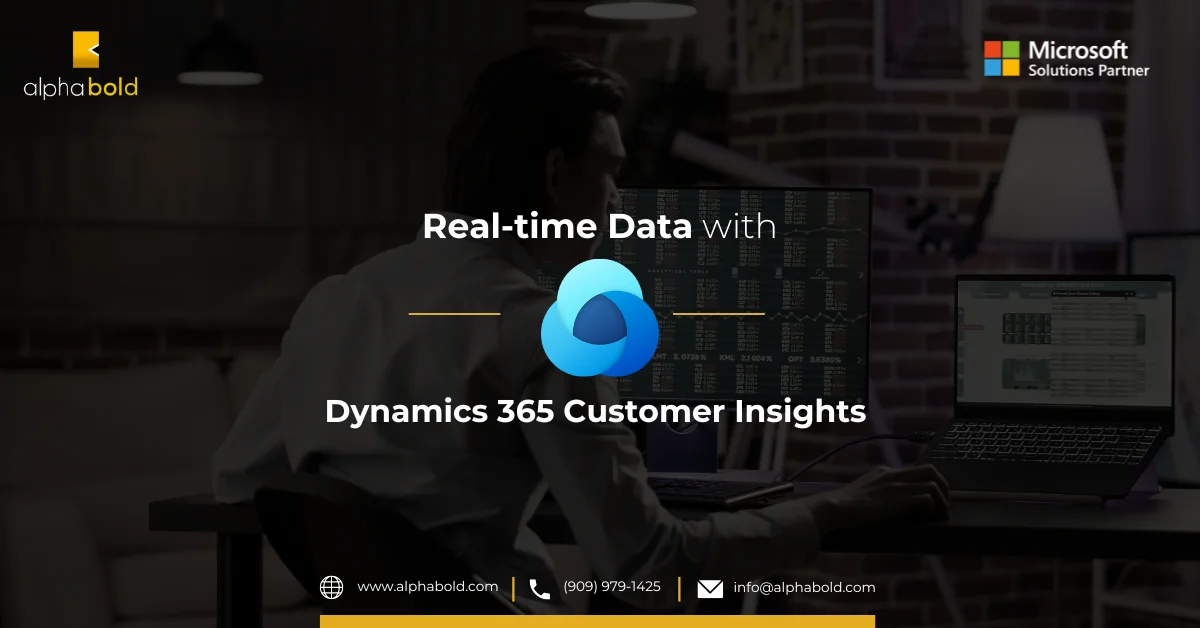Introduction
Success is often synonymous with adaptability and efficiency. Decision makers, executives, and members of the esteemed C-suite know the paramount importance of staying ahead of the curve. As data reigns supreme, one key strategy has emerged as a driving force behind achieving excellence: CRM integration. CRM integration is no longer merely an option but a strategic necessity that has the potential to revolutionize your business. According to a recent report by Gartner, companies that fully utilize CRM systems can experience a 41% revenue increase per salesperson. The implications of this statistic alone are profound, signaling a fundamental shift in how we engage with customers and manage relationships.
This comprehensive article will examine the significance and tangible benefits CRM integration can bring to your organization. Let’s drill down to the intricacies of CRM software integration, exploring its significance, key considerations, and transformative impact on businesses.
Defining CRM Systems: A Brief Overview
CRM systems help businesses manage their interactions with customers and prospects. CRM software serves as a central repository for customer data, allowing companies to track and analyze customer interactions, preferences, and behaviors. CRM systems can encompass various functions, including sales, marketing, customer support, and more, all aimed at enhancing customer relationships and driving business growth. Therefore, integrating a CRM system for streamlining business operations is becoming necessary for companies of all sizes.
CRM integration is the process of connecting a CRM system with other software and data sources within an organization. CRM software integration is a pivotal aspect of modern business operations. It refers to the seamless connection and collaboration between a CRM system and various other software applications and data sources within an organization. Let’s review some aspects in which CRM integration benefits business operations.
Unifying Customer Data: Since CRM systems serve as the central repository for customer information, customer data often resides in multiple systems and departments, such as sales, marketing, and customer support. Integration combines this dispersed data, providing a holistic view of each customer. This unified data is invaluable for understanding customer behavior, preferences, and history, enabling personalized interactions and targeted marketing campaigns.
Efficiency and Productivity: Employees may need to duplicate efforts by manually inputting data into different systems without CRM integration. This is not only time-consuming but also prone to errors. CRM integration automates data sharing, streamlining workflows and improving overall productivity. It empowers employees to focus on high-value tasks, such as building relationships and making strategic decisions.
Enhanced Decision-Making: Integrated CRM systems provide real-time insights, allowing executives and decision-makers to access accurate, up-to-date information about customer interactions, sales performance, and marketing effectiveness. These insights are invaluable for crafting effective strategies, forecasting sales trends, and allocating resources efficiently.
Personalized Customer Experiences: Integration enables businesses to create personalized customer experiences. When a customer interacts with a company through the website, social media, or in-store, the integrated CRM can provide real-time information to the staff. This allows for personalized recommendations, tailored marketing messages, and a seamless customer journey, ultimately increasing customer satisfaction and loyalty.
Key Considerations in CRM Software Integration
CRM integration enhances the efficiency and effectiveness of CRM systems by providing a unified view of customer information. However, there are certain factors that every decision-maker and business owner should consider before moving forward with CRM integration.
Data Security and Compliance: Protecting customer data is paramount. Organizations must ensure that data is encrypted during transit and at rest. Compliance with data protection regulations, such as GDPR or CCPA, is essential. CRM integration should meet these requirements to avoid legal repercussions and reputational damage.
Scalability: As businesses grow, their CRM integration needs may change. Scalable solutions are essential to accommodate increased data volume, additional applications, and evolving business requirements. The chosen CRM system and integration approach should be flexible enough to adapt to these changes.
Customization and Configuration: Each organization has unique processes and requirements. CRM integration solutions should be customizable and configurable to match these specific needs. This includes mapping data fields, creating custom workflows, and designing tailored reports and dashboards.
User Training and Adoption: Even the most advanced CRM integration is only effective if employees know how to use it. Investing in comprehensive training programs and fostering a culture of CRM adoption is critical to maximizing the benefits of integration.
Ready to Get on CRM Integration Journey?
Partner with AlphaBOLD to help you take the first step toward a more integrated, data-driven future.
Reqest a demoThe Benefits of CRM Integration for Decision Makers and Executives
CRM integration offers decision-makers and executives many benefits that directly impact an organization’s strategic direction and bottom line. By seamlessly connecting the CRM system with various departments and data sources, decision-makers can access a comprehensive and real-time view of customer interactions and company performance. This invaluable insight enables:
Enhancing Customer Insights: Integration allows decision-makers to access comprehensive customer profiles and insights, enabling them to make informed strategic decisions based on real-time data.
Streamlining Data Management: Integration reduces manual data entry and the risk of errors by automating data transfer between systems, improving data accuracy and efficiency.
Increasing Sales Efficiency: Sales teams benefit from integrated CRM systems by accessing up-to-date customer information, enabling them to personalize interactions and close deals faster.
Boosting Customer Satisfaction: Integration enables better customer service by giving support teams a holistic view of customer interactions, leading to quicker issue resolution and improved customer satisfaction.
CRM Integration Strategies for the C-suite
The C-suite, including CEOs, CMOs, CFOs, and CIOs, shapes the integration process. They must champion the importance of CRM integration and provide strategic guidance and resources to ensure its success. This involves fostering a culture of data-driven decision-making, making informed choices about CRM systems, ensuring seamless technical integration, and investing in training and adoption initiatives.
Building a Data-Driven Culture
Fostering a data-driven culture starts at the top. The C-suite should emphasize the value of data in decision-making and set an example by relying on data-driven insights themselves. This involves:
- Promoting Data Literacy: Encourage all employees to understand and interpret data effectively. Provide training and resources to boost data literacy across the organization.
- Aligning Incentives: Tie employee incentives and performance metrics to data-driven goals, reinforcing the importance of data in achieving business objectives.
Selecting the Right CRM System
Selecting the right CRM system is a critical decision that requires careful consideration. The C-suite should:
- Define Strategic Goals: Clearly articulate the organization’s goals and objectives to ensure the chosen CRM system aligns with these priorities.
- Evaluating Integration Capabilities: Assess the CRM system’s integration capabilities, compatibility with existing software, scalability, and flexibility to adapt to future needs.
Ensuring Seamless Integration
Technical integration is pivotal for CRM success. The C-suite should:
- Allocate Resources: Allocate the necessary budget, IT resources, and personnel to facilitate a smooth integration process.
- Data Mapping and Transformation: Ensure that data from different sources is correctly mapped and transformed to match the CRM’s data structure to prevent data inconsistencies.
Training and Adoption Initiatives
The C-suite must invest in training and adoption programs to ensure that employees at all levels are proficient in using the CRM system effectively. This involves:
- Providing Comprehensive Training: Offer training sessions and resources to educate employees about the CRM’s features, benefits, and best practices.
- Monitoring and Support: Establish ongoing support mechanisms and monitor adoption rates to identify and address any issues or gaps in user understanding.
By actively engaging in these strategies, C-suite can maximize the value of CRM integration, enabling the organization to harness the power of customer data for informed decision-making and sustainable growth.
Future Trends in CRM Software Integration
As technology advances, the landscape of CRM software integration is evolving to keep pace with changing customer expectations and business needs. Here are some key future trends in CRM software integration:
1. AI and Machine Learning in CRM
Enhanced Customer Insights: AI and machine learning algorithms are transforming CRM by analyzing vast amounts of customer data to uncover valuable insights. These technologies can predict customer behavior, identify trends, and recommend personalized actions to improve customer relationships.
Chatbots and Virtual Assistants: AI-powered chatbots and virtual assistants are becoming integral to customer service. They provide immediate responses to customer queries, streamline support processes, and offer a consistent, 24/7 customer experience.
Predictive Analytics: Predictive analytics powered by AI can forecast sales trends, identify potential leads, and optimize marketing campaigns. This empowers businesses to make data-driven decisions and allocate resources more efficiently.
Automation of Routine Tasks: AI-driven automation helps streamline routine tasks like data entry, lead scoring, and email marketing, freeing human resources for more strategic activities.
2. Omnichannel Integration
Seamless Customer Experiences: Omnichannel integration ensures customer interactions are consistent and continuous across all channels, whether a website, mobile app, social media, or in-store. This trend aims to provide customers with a seamless and personalized experience regardless of how they engage with the brand.
Data Integration Across Channels: Omnichannel CRM integration involves connecting various communication channels and touchpoints to consolidate customer data. This lets organizations gain a 360-degree view of customer interactions, resulting in more informed decision-making.
Personalization at Scale: By integrating data from multiple channels, businesses can personalize marketing messages, recommendations, and offers for individual customers, enhancing engagement and loyalty.
Real-time Insights: Omnichannel integration enables real-time monitoring of customer interactions, allowing businesses to respond promptly to customer needs and changing market conditions.
3. The Role of IoT in Customer Relationship Management
IoT Data for Customer Insights: IoT devices, such as wearables, smart appliances, and sensors, generate vast amounts of data. Integrating this data with CRM systems allows organizations to gain deeper insights into customer behavior and preferences, enabling more personalized and context-aware interactions.
Proactive Customer Service: IoT integration enables proactive customer service by identifying issues before they become problems. For example, connected devices can alert service teams to maintenance needs or product failures, allowing for timely support and enhancing customer satisfaction.
Predictive Maintenance: IoT-enabled CRM systems can predict when products or equipment may require maintenance or replacement. This not only improves customer satisfaction but also reduces downtime and maintenance costs.
Inventory and Supply Chain Optimization: IoT data integration helps businesses optimize inventory levels, improve supply chain efficiency, and ensure timely product availability, leading to better customer experiences.
Further Reading: The Comprehensive Guide to CRM Software Selection
Explore the mayrid of Possibilities with AlphaBOLD
Want to make sure that CRM integration is tailored to your unique requirements?
Reqest a demoThe Transformative Power of CRM Integration: Conclusion
The impact of CRM integration goes beyond the immediate gains. It fosters a culture of continuous improvement, where data is revered as a strategic asset, and every interaction with a customer is an opportunity to strengthen the relationship. It opens doors to innovation, enabling organizations to embrace AI, machine learning, omnichannel, and IoT seamlessly.
If you want a CRM integration that fits and evolves with your business scope, it’s time to explore the myriad possibilities with AlphaBOLD. Our team of experts is dedicated to helping you navigate the intricacies of CRM integration.








